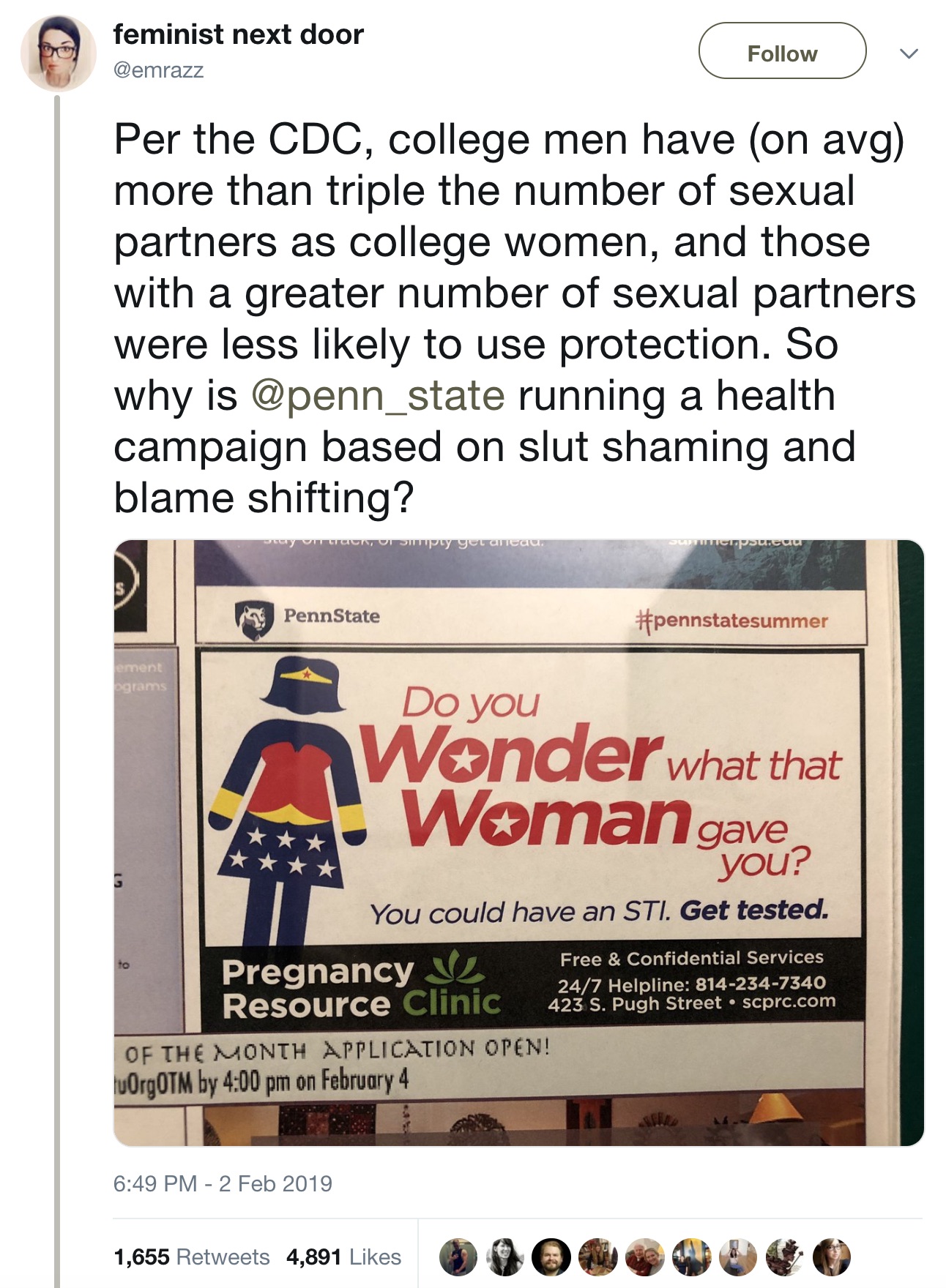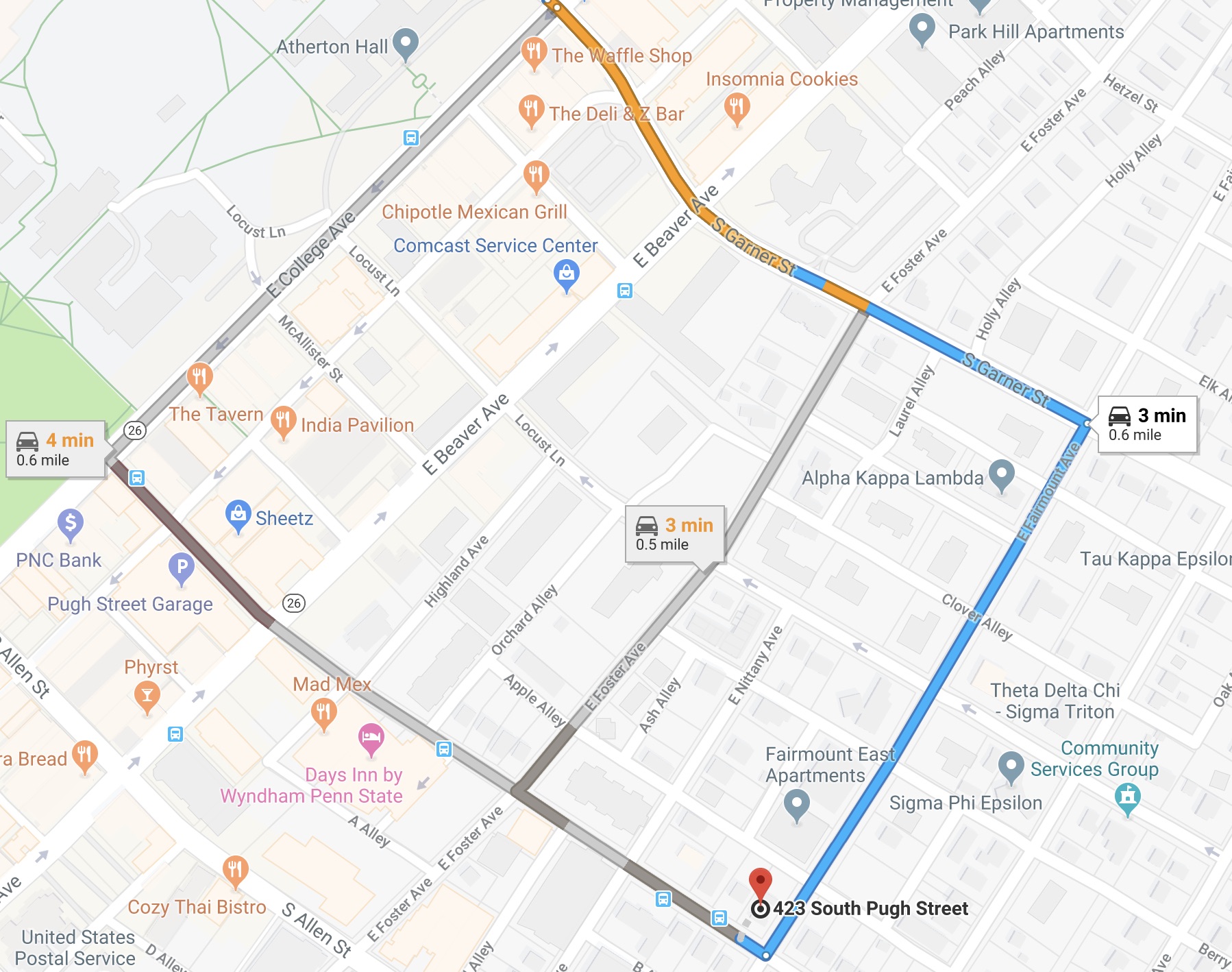On February 3 2019, the Facebook page Feminist News shared a screenshot of a tweet to Penn State about their placement of a questionable sexual health advertisement:

The tweet’s text read:
Per the CDC, college men have (on avg) more than triple the number of sexual partners as college women, and those with a greater number of sexual partners were less likely to use protection. So why is @penn_state running a health campaign based on slut shaming and blame shifting?
She subsequently elaborated on the context of the advertisement:
Photo taken today at the @penn_state student center via @KelseyDenny
Penn State’s official Twitter account replied to the tweet:
Thank you for raising this issue. We are looking into the placement of this ad.
However, Penn State did not explicitly take responsibility for the advertisement, described here as advertisement as “slut shaming,” a term that is defined as the practice of criticizing people — especially women and girls — for violating societal expectations of their sexuality.
Alongside a women’s bathroom-style glyph, but dressed in a Wonder Woman-type outfit, the advertisement said:
Do you Wonder what that Woman gave you? You could have an STI. Get tested.
Pregnancy Resource Clinic, Free & Confidential Services
The advertisement also included a “24/7 Helpline,” a street address, and a website address — scprc.com (archived here), which appeared to be an anti-abortion organization posing as a sexual health center. The American Medical Association (AMA) has described such organizations as “legal but unethical” in the AMA Journal of Medical Ethics:
Crisis pregnancy centers are organizations that seek to intercept women with unintended pregnancies who might be considering abortion. Their mission is to prevent abortions by persuading women that adoption or parenting is a better option. They strive to give the impression that they are clinical centers, offering legitimate medical services and advice, yet they are exempt from regulatory, licensure, and credentialing oversight that apply to health care facilities.
When people visited the site, they were greeted with a number of links to areas of the site about making an “educated decision” about unplanned pregnancy and services for sexually transmitted infection testing, as its “about” page explained:
Pregnancy Resource Clinic exists to educate, encourage, and empower men and women to make informed life choices. We are a 501(c)(3) non-profit organization. Our trained client advocates and medical personnel, including RN’s and an Ultrasound Technician, are ready to serve you and to answer your questions. All services are strictly confidential and absolutely free of charge.
…Our desire to help you is based on Christian principles and values.
We have been serving the greater Centre Region since 1984, offering both men and women information and support.
An embedded map suggested that while the anti-abortion clinic was not on Penn State’s campus, it was nearby:

There is no indication that Penn State created the advertisement, but it was in their student center.
On February 4 2019, the university responded:
The poster has been removed. This ad was not created by Penn State. This ad was created by the Pregnancy Resource Clinic, which is an off campus independent org. and is not a part of the University. The University is in the process of reviewing guidelines and processes.
— Penn State (@penn_state) February 4, 2019
The original tweet to Penn State involved an advertisement seemingly placed by an anti-abortion group. A subsequent tweet from the original poster in the same thread explained that the advertisement appeared in the university’s student center, but it was not placed there by Penn State. However, whether the school approved it before the backlash remains unknown.

